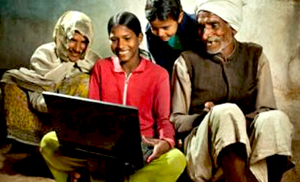 Barcelona, Feb 25: FMCG giant Unilever has partnered Internet.org, a Facebook-led alliance, to study how Internet adoption can be increased in rural communities in India.
Barcelona, Feb 25: FMCG giant Unilever has partnered Internet.org, a Facebook-led alliance, to study how Internet adoption can be increased in rural communities in India.
As an initial step, Internet.org and Unilever will carry out a comprehensive study to examine the opportunities to increase internet adoption in rural communities.
Apart from infrastructure and cost -- which are known barriers to connectivity, the partnership will carefully evaluate other educational and cultural factors that limit Internet use.
"Lowering the barriers to Internet access requires a collaborative effort. Through this partnership, Unilever and Internet.org are pursuing the mission of bringing the benefits of internet access to the two-thirds of the world who are not yet connected," Facebook said.
Internet.org is focussed on enabling the next five billion people without access to come online and has companies like Facebook, Ericsson, MediaTek, Nokia, Opera, Qualcomm and Samsung as its founding members.
The initiative will see the partners collaborate on developing lower-cost, higher-quality smartphones and deploying Internet access in underserved communities.
Unilever and Internet.org will leverage this research to inform on the development of a series of on-the-ground projects with the aim of improving lives in rural India through better connectivity.
"Internet is the foundation of global knowledge economy and a way to deliver basic financial services, health and educational tools. In partnership with Unilever, we hope to break down the barriers to access and, in turn, provide millions of people with the information that can help them, and their communities, thrive," Facebook Director Global Connectivity Chris Weasler said.
Unilever already has extensive experience developing and deploying programmes for rural consumers.
For example, Lifebuoy, a leading health soap, has been promoting hand washing awareness in rural India for several years and has successfully enabled women in remote communities to enhance their incomes through the Shakti ( 526KB ) project.
"Access to the internet is improving in countries like India but there is still a very high proportion of people that would love the opportunity to connect and engage but who cannot enjoy what many of us take for granted."
"Having no Internet access naturally removes all associated opportunities that it brings which, in turn, can be a barrier to learning and ultimately hinder economic development," Unilever Chief Marketing and Communications Officer Keith Weed said.







Comments
Add new comment